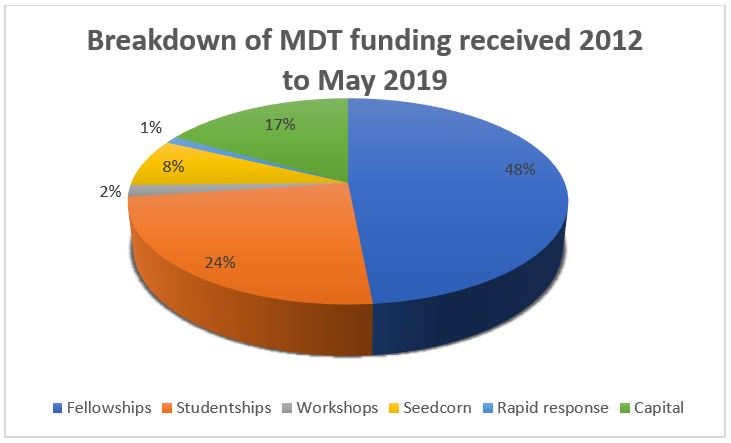What has been the impact of the MDT funding portfolio?
Since 2012, the Macaulay Development Trust has provided funding to the James Hutton Institute for:
- 14 MDT Fellowships
- 26 MDT PhD studentships
- 19 seedcorn projects
- 11 rapid response projects
- various workshops
- various capital items (either fully or by providing match funding)
Funding has supported scientists and social scientists from a wide range of disciplinary backgrounds to do innovative research supporting sustainable land use and vibrant rural communities across Scotland. The research has led to impacts on science as evidenced by over 50 journal publications and reports, providing a better understanding, fresh empirical evidence, and new methods for capturing and analysing data. It has leveraged additional funding for both capital equipment and follow-on projects, many of which have allowed insights gained in Scotland to bring international benefits. MDT contributions have supported policymakers at the national, regional and local level and have influenced the way Scotland’s land and natural resources are managed and used in practice.

The following examples are illustrative of the wide range of projects and topics areas that have received MDT funding:

